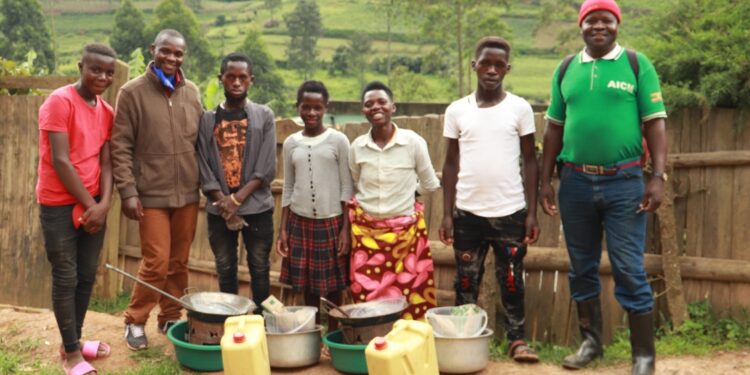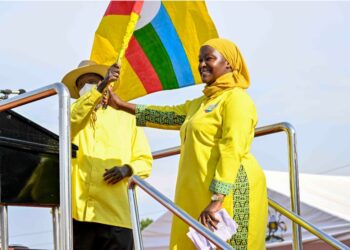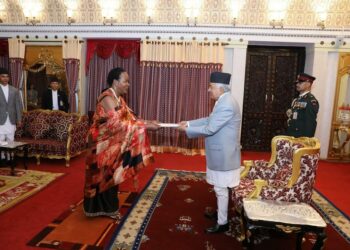African International Christian Ministry, an organization that fights for the rights of indigenous people in Uganda, is calling for affirmative action for Batwa people in leadership positions.
The Acting Executive Director of AICM, Denis Mucunguzi, said this on Monday at Town View hotel in Kabale Municipality during a dissemination meeting of a research finding on Inclusion of indigenous people in governance, health and education systems in Uganda, that were carried out by AICM with support from Irish Aid through Minority Rights Group International (MRG).
The research findings that were carried out in Kisoro, Kabale, Rubanda, Kanungu, Buko and Kween districts aimed at assessing the inclusion of indigenous people in governance, health education systems, show that the 29 local council committees visited, there were 106 females and 222 males on those committees with only 6 Batwa/Benet members, whereas in the 16 health center facilities visited, there was no Mutwa or Benet on the Health center management committee.
During the meeting that was attended by different stakeholders including local leaders, from Batwa communities from the districts Kisoro, Kabale, Rubanda, Kanungu, and selected Batwa people, Mucunguzi said that there were concerns that most times Batwa and Benet are not informed and being few in numbers in the community yet elections are competitive and require a lot of resources which indigenous people don’t have.
Mucunguzi therefore said that there should be affirmative action to include indigenous people in leadership positions and review of policies and guidelines for school management and health center management committees to cater for such indigenous minorities.
Speaking during the meeting, the Kabale District Education Officer Moses Tumwijukye Bwengye said that the school management committees are composed of six members from the foundation body, teachers’ representative, two local council representatives, and a representative of School old students where the Batwa people have no position in that committee.
Moses however said that some years back they convinced a representative of Batwa people to be at the school management committee at Rutojo primary school in Kabale district but he later denied the position due to lack of self esteem. He added Batwa people should have self esteem if they are to be considered for different leadership positions in the community .
In the same meeting, the Kabale district Councilor representing the Youths who is also the District Secretary for Production Ronald Bagamuhunda said that there should be massive sensitization to Batwa people so as they can have self esteem.
He commended African International Christian Ministry (AICM) and its partners for fighting for the rights of indigenous people in the Country, adding that the government will try to find out ways of engaging Batwa into parish development model program which is government’s program to alleviate people from poverty.
Edson Ababangira, a health worker at Kirima health center III in Kanungu district, and Kenneth Tumuhamye District councilor representing Kanyantorogo subcounty in Kanungu district who is also the secretary for social services retaliated the need for sensitizing the indigenous people on advantages of engaging in leadership.
The Batwa in Uganda (today) experience systematic and pervasive discrimination from the government and other sectors of society, and their rights as indigenous peoples are neither recognized nor respected.
A few Batwa own very little agricultural land, and the least productive, in designated locations in hard-to-reach hilly terrain near the forest.
Before the declaration of the Echuya as a central government forest reserve, the forest was heavily encroached upon. Up to now, some activities such as wild hunting, collection of honey, mushrooms, water, bamboo for basket making, building poles, making of bee hives and fire wood are being carried out by both Batwa and non-Batwa dominant ethnic communities.
Batwa, illegally hunted in the forest due to lack of alternative sources of proteins. The forest is also of cultural importance to the Batwa, who offer religious sacrifices to their gods. Echuya Batwa were never involved nor considered for consultation and compensation when the decision-making process to exclude them from the forest was being taken.
As a result, most Batwa became landless with extreme poverty and have turned into beggers.
Do you have a story in your community or an opinion to share with us: Email us at editorial@watchdoguganda.com













